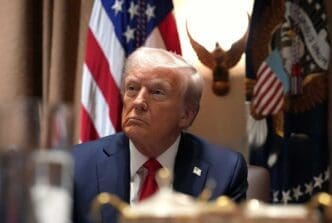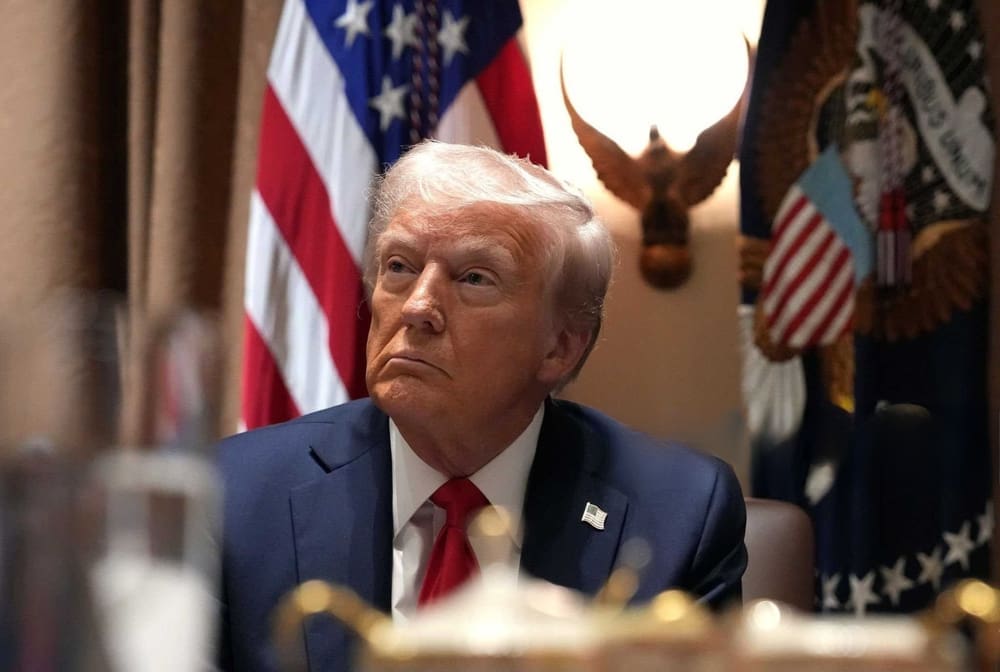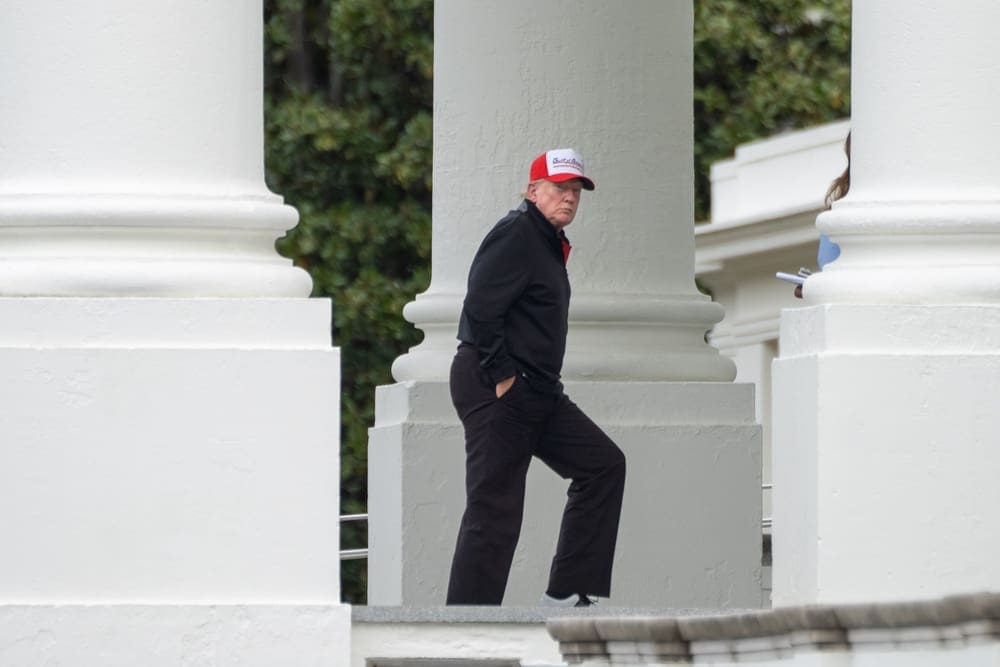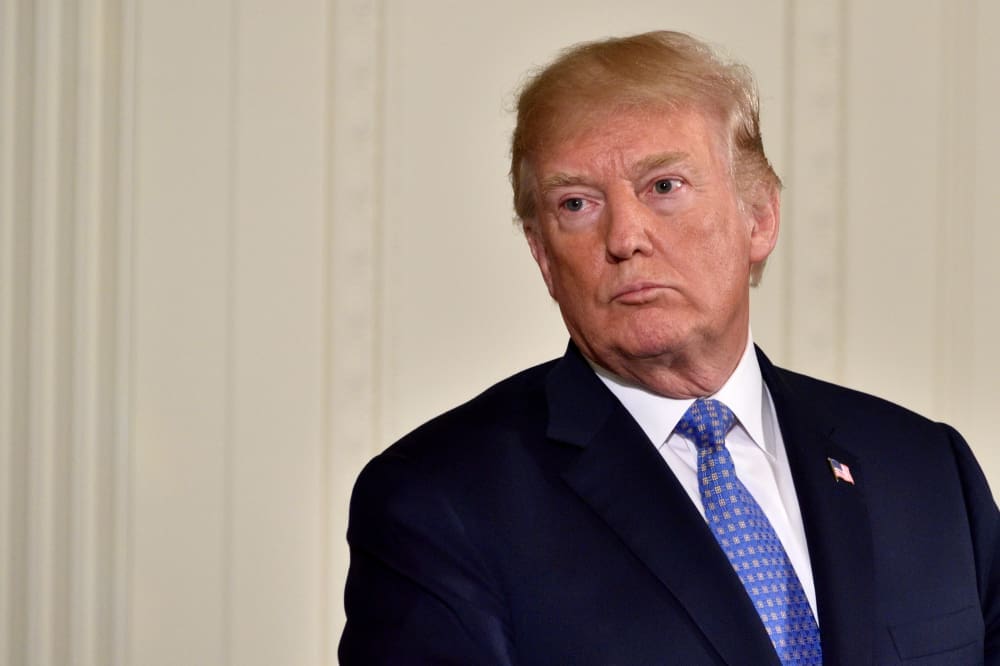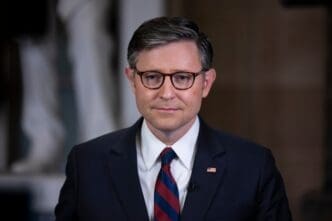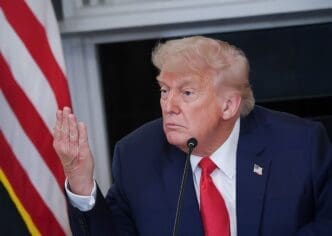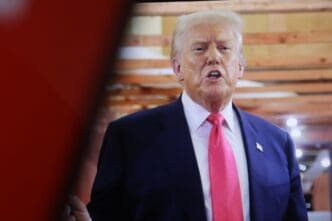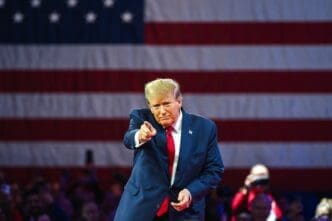President Donald Trump was officially informed by the Department of Justice in May that his name appears multiple times within sensitive government files related to the convicted sex offender Jeffrey Epstein, according to a report from the Wall Street Journal. The briefing, confirmed by top justice officials, complicates President Trump’s unfulfilled campaign promise to release all Epstein-related documents and intensifies scrutiny of his past association with the disgraced financier. While the DOJ has stated the information does not warrant a criminal investigation into the President, the revelation has ignited a political firestorm in Washington.
The DOJ Briefing and Shifting White House Stance
The disclosure originated from a Wall Street Journal report detailing a May briefing where Justice Department officials made President Trump aware of his inclusion in the Epstein files. According to the report, officials characterized the mentions as unsubstantiated hearsay, a point later echoed by the Attorney General.
Initially, the White House aggressively pushed back, labeling the story as “fake news.” However, this categorical denial was later walked back when an administration official, speaking to Reuters, conceded that they did not, in fact, deny the presence of President Trump’s name in the documents.
In a subsequent formal statement, Attorney General Pam Bondi and her deputy, Todd Blanche, provided clarity without directly referencing the newspaper’s article. “Nothing in the files warranted further investigation or prosecution,” they stated, adding, “As part of our routine briefing, we made the president aware of the findings.”
Unsealing the Transcripts
The Justice Department also announced a significant legal step, revealing it has “filed a motion in court to unseal the underlying grand jury transcripts.” This move is an apparent effort to promote transparency while controlling the release of sensitive information, separating vetted court proceedings from the raw, unverified data contained elsewhere in the files.
A Campaign Promise Under Scrutiny
This development places a spotlight on President Trump’s repeated campaign pledges to declassify and release all government records pertaining to the Epstein case. The promise was a popular talking point among his supporters, who often view the Epstein network as a symbol of deep-seated corruption among the global elite.
Critics have persistently questioned the delay in fulfilling this promise, suggesting it raises questions about what the files might contain about President Trump or his associates. The administration has countered that a full, unfiltered release is not possible.
Officials have cited the presence of graphic material, including child pornography, and the need to protect the identities of victims as primary reasons for withholding certain documents. This creates a difficult balance between the public’s right to know and the legal and ethical obligations to protect the vulnerable.
What Does ‘Being Named’ Mean?
It is critical to understand that an individual’s name appearing in the Epstein files does not, in itself, imply any wrongdoing. The vast collection of documents is believed to include a wide array of information, such as Epstein’s personal phone books, address lists, and the flight logs from his private aircraft.
Furthermore, the files contain investigative notes, witness interviews, and tips from the public, much of which is considered “unverified hearsay.” Many prominent business leaders, politicians, and celebrities are known to be named in the documents, often in benign or neutral contexts.
A Complicated History
President Trump’s association with Jeffrey Epstein dates back to the 1990s and early 2000s, a period when Epstein was a fixture in New York and Palm Beach society. Public records, including flight logs, confirm that President Trump flew on Epstein’s private plane on several occasions during the 1990s.
For his part, President Trump has consistently maintained that he had a falling out with Epstein and severed ties long before Epstein’s extensive legal troubles began nearly two decades ago. “I haven’t spoken to him in 15 years. I was not a fan of his, that I can tell you,” President Trump has previously stated.
Legal Battles and Political Deflections
The controversy over the DOJ files is unfolding alongside a separate but related legal conflict. President Trump recently launched a major lawsuit against the Wall Street Journal, seeking at least $20 billion in damages over a story that alleged he sent a suggestive birthday message to Epstein in 2003, an allegation he vehemently denies as “fake.”
When recently questioned by reporters on the matter, a visibly frustrated President Trump deflected, pivoting to a familiar theme. He urged journalists to instead focus on “the witch hunt you should be talking about,” which he linked to former President Barack Obama and the 2016 election.
The confirmation that President Trump was briefed on his own inclusion in the Epstein files creates a complex political and public relations challenge. It pits a past social connection against a current campaign promise, all while the President is engaged in an aggressive legal war with the media over the very same topic, ensuring this story will remain a defining issue for his administration.

